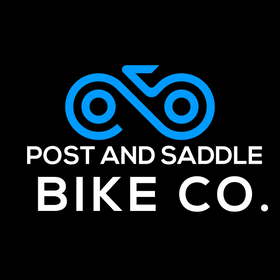Choosing the right bike can be overwhelming with so many styles and features available. Whether you need a bike for commuting, off-road trails, or fitness, selecting the right one depends on your riding goals, budget, and terrain.
At Post and Saddle Bike Co. in Waxahachie, TX, we help cyclists find the perfect bike based on their needs. This guide covers the different types of bikes, key features to consider, and expert advice to make your decision easier.
1. What to Consider Before Buying a Bike
Before selecting a bike, consider the following factors:
- Where will you ride most? Pavement, trails, gravel, or a mix of surfaces
- What is your budget? Entry-level, mid-range, or high-performance models
- Do you prioritize comfort or speed? Casual rides versus competitive cycling
- What accessories do you need? Helmets, lights, locks, and other gear
Once you answer these questions, you can narrow down your choices.
2. Quick Bike Comparison Table
| Bike Type | Best For | Pros | Cons |
|---|---|---|---|
| Road Bike | Speed & long distances | Lightweight, fast, efficient | Not good for off-road trails |
| Mountain Bike | Off-road trails | Durable, great traction | Heavier, slower on pavement |
| Hybrid Bike | Casual & commuting | Comfortable, versatile | Not as fast as road bikes |
| Gravel Bike | Mixed surfaces | Handles pavement & gravel well | More expensive than hybrids |
| eBike | Assisted riding | Helps with hills, long distances | Heavier, requires charging |
This table provides a quick comparison of bike types to help you find the best fit.
3. Types of Bikes: Pros, Cons, and Best Use Cases
Road Bikes – Built for Speed and Efficiency

- Best for: Riders who primarily cycle on paved roads and prioritize speed
- Key Features: Lightweight frame, thin tires, drop handlebars for aerodynamics
- Pros: Fast and efficient, ideal for long rides and endurance training
- Cons: Less comfortable on rough surfaces, limited to pavement
Mountain Bikes – Designed for Trails and Rough Terrain

- Best for: Off-road riders who need durability and stability on uneven surfaces
- Key Features: Wide, knobby tires, suspension system, strong frame
- Pros: Handles rough terrain, provides better traction and control
- Cons: Heavier than road bikes, less efficient on pavement
Hybrid Bikes – A Balance Between Comfort and Versatility

- Best for: Casual riders and commuters who want a mix of road and trail capabilities
- Key Features: Flat handlebars, medium-width tires, upright seating position
- Pros: Comfortable for city riding, works on both pavement and light trails
- Cons: Not as fast as a road bike, not as rugged as a mountain bike
Gravel Bikes – For Mixed Terrain and Long-Distance Rides

- Best for: Cyclists who want the speed of a road bike with off-road capabilities
- Key Features: Drop handlebars, wider tires than a standard road bike, lightweight but durable frame
- Pros: Stable on mixed surfaces, ideal for long rides on varied terrain
- Cons: Heavier than traditional road bikes, more expensive
Electric Bikes (eBikes) – Assisted Riding for Longer Distances

- Best for: Riders who want extra assistance with hills, long rides, or commuting
- Key Features: Battery-powered motor with multiple speed settings
- Pros: Extends ride range, reduces effort on hills, ideal for commuting
- Cons: Heavier than traditional bikes, requires battery charging
4. Choosing the Right Bike Size and Fit
- Frame Size Matters: A properly sized frame ensures comfort and efficiency
- Seat and Handlebar Adjustments: Adjusting these components helps prevent discomfort and improves control
- Pedal and Shoe Compatibility: Choose between flat pedals and clip-in systems based on your riding style
If you are unsure about the correct size and fit, stop by Post and Saddle Bike Co. to discuss your options with an expert.
5. Key Features to Consider When Buying a Bike
Frame Material
- Aluminum: Lightweight and affordable
- Carbon Fiber: Light and strong but more expensive
- Steel: Durable and comfortable but heavier
Gear System
- Single-speed: Low maintenance, good for flat terrain
- Multi-speed: More versatility, better for hills and varied conditions
Brakes
- Disc Brakes: Stronger stopping power, better for wet conditions
- Rim Brakes: Lighter and more affordable, but less effective in rain
Suspension System
- Full Suspension: Best for rough trails, absorbs shocks better
- Hardtail (Front Suspension Only): Lighter and more efficient for mixed-terrain riding
Understanding these features helps ensure you choose the best bike for your needs.
6. Common Questions About Buying a Bike
How much should I spend on my first bike?
- Entry-level bikes: $400–$1,000
- Mid-range bikes: $1,000–$3,000
- High-performance bikes: $3,000+
Should I buy a new or used bike?
- New bikes: Come with warranties and updated features
- Used bikes: More affordable but require careful inspection
What accessories do I need?
- A helmet for safety
- Lights for night riding
- A secure lock for theft prevention
- A pump for tire maintenance
Choosing the right bike is about more than just style—it’s about finding the perfect match for your needs.
At Post and Saddle Bike Co. in Waxahachie, TX, we don’t just sell bikes—we help riders make the right choice. Our team is here to walk you through the best options, answer your questions, and ensure you leave with a bike that fits your lifestyle.
Stop by today or call us at (214) 499-3880 to find the perfect bike for you.

